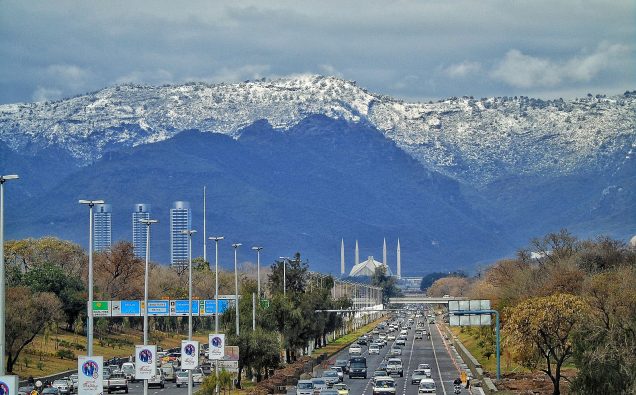
Decisive policy implementation since June has started to reverse Pakistan’s large imbalances, preserving financial stability, the International Monetary Fund said in its first review of the loan facility for the country.
The Fund, which this week released the second tranche of $452.4 million for Pakistan under a $6 billion bailout program, notes that market confidence is returning.
“The external adjustment is proceeding quickly on the back of an orderly adjustment to a market-determined exchange rate,” a summary of the review says as PM Imran Khan’s Government in Islamabad looks to stabilize the economy with some politically tough fiscal decisions.
Foreign investment inflows and support by friendly Arab countries have been the other factors in addition to the IMF deal that has helped Pakistan revive its economic outlook following a year of uncertainty and hurtful imbalance in payments.
The Fund particularly notes the upbeat performance in the first quarter of the ongoing financial year.
“Fiscal performance was strong in the first quarter of FY 2020 and budgetary allocations to the Benazir Income Support Program (BISP) have been expanded.”
Nevertheless, “growth has slowed, broadly in line with expectations, and market confidence is gradually returning.”
Inflation has started to stabilize, and the State Bank of Pakistan has paused its interest rate hike cycle, the IMF says.
“I would say that program implementations have been on track for the first review. All the performance criteria for the targets of the first quarter were met or exceeded, in particular those on the external sector, foreign currency reserves and NDA, likewise on the fiscal side,” Ernesto Ramirez Rigo, Mission Chief for Pakistan, Middle East and Central Asia Department, said in a conference call.
Rigo told reporters that the economic outlook remains the same.
“Having said that, the economic outlook remains unchanged relative to what we had at the time of the program approval within the deceleration of economic activity as was expected at the time of program approval, with only two revisions; one revision for inflation, which we have slightly lower in part because some of the pass through from the exchange rate adjustments has been more moderate than we anticipated.
“And at the same time, we have also made some adjustment to the export-import composition of the current account, but without any major substantial changes in the total current account deficit share of GDP that we expect to see this year.”

Gwadar Port, Image: Saadsuddozai /.wikimedia
Pakistan has been struggling to overcome its balance of payments gap and in addition to IMF and other loans is eyeing to increase exports, which have stagnated over the past several years.
The Mission Chief said the Fund in its review looks at two components.
“One, is what I mentioned at the beginning (the performance criteria for the quarter). And secondly, and more important, is the forward-looking component in terms of the policies that the authorities are committed to.
“In that sense, and that is really what was the key for the review, we see that the authorities remain strongly committed to all the objectives of the program. We are now at the stage in the program where we move to the area of structural reforms. These ones are really important to build an institutional framework for the country so that there is no repetition of the boom bust cycles of the past.”
According to an IMF transcript Rigo highlighted three areas where it is important that things continue to progress.
“One, the quality of the fiscal adjustment, while we have already started to see improvements on the fiscal accounts, it is very important that this improvement is based on better underpinning for it to be permanent. And that will require continued work on the tax revenue side, rather than just on total revenue increases, or containing expenditure.”
He said the design of Fund’s Pakistan program is based on tax revenue mobilization and not so much on reducing expenditures.
“This strategy is because our assessment is that Pakistan is still lacking in the area of development spending, such as infrastructure, and we feel that it is very important that fiscal space is created to meet this development needs.
“So, the quality of fiscal adjustment will start to have a larger and larger focus in the program. That will of course include tax policy reforms, something that will be of relevance for the following year budget. And then one other structural area which supplement the fiscal adjustment, is tackling the issue of circular debt in the energy sector. The authorities have put together a comprehensive strategy to address the flow and now this strategy has started to be implemented, that will be the purpose for our forthcoming reviews.
“Likewise, there is need for the NEPRA Legislation, that is regulators for the energy sector, to have more automaticity and the capacity to implement when necessary (inaudible) to support the reduction in circular debt. That’s something that is a benchmark for the end of December, and we look forward to look at those reforms. And of course, very important to us, is the independence of the Central Bank, the legislation now is a structural — submitted legislation is now a structural benchmark for March.
This was originally set for the end of December 2019, but our technical team in the Legal Department, after looking at the necessary changes, and in consultation with the authorities we decided to spend some more time working on this to provide technical assistance, and we set the benchmark so that it would be more feasible, and still very ambitious, but more feasible.”
















